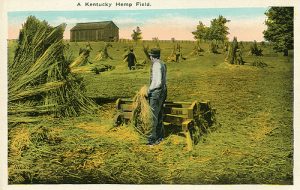
From prehistoric time to seventeen hundreds, our clothing consists of natural fibers. The development of manufactured fibers mainly linen (also known as flax and mainly used by Europeans), wool and silk came in 1900s. Later cotton was added and became the most common material. These four materials are basic to all varieties that are being used today. However, introduction of polyester, a manufactured fiber, displaced cotton as the main clothing material.
In order to call flax, it must be 100%. Wool is known by more common names such as flannel, broadcloth, polo, or tweed. Silk is also called by several names including satin, velvet, poplin, or chiffon. Cotton on the other hand is known by many names including corduroy, denim, eyelet, jean, percale, muslin, or sateen.
We still have a love affair with hairs of animals such as cashmere which comes from goat, South American alpaca and horsehair.
Plant fibers, mainly hemp and jute, are still play a role.
Weight of a fabric is a main factor in selecting a material. Sheer weight materials are used for lingerie, bridal and hosiery products. Heavier materials weighing more than 600 grams per square meter are used to make winter coats, mats, rugs, upholstery, and carpets.